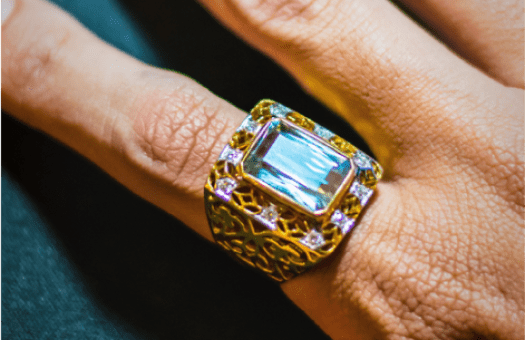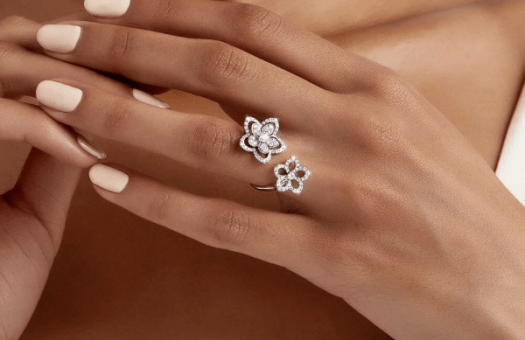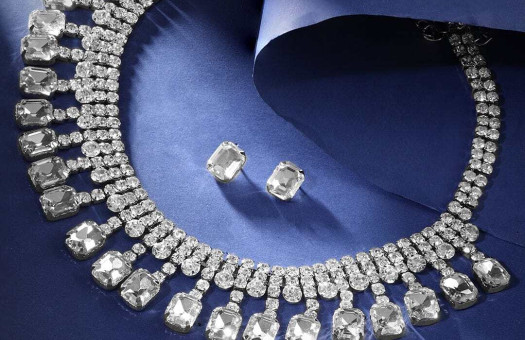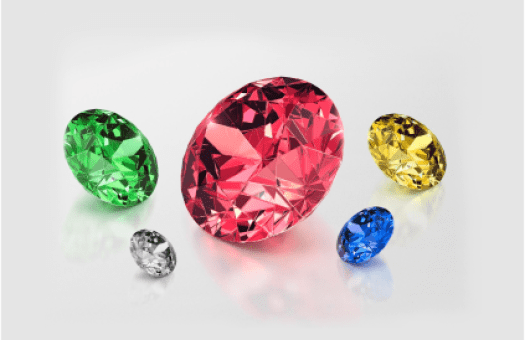
Ring Care Guide
Special occasion jewellery should last for a lifetime. Read our comprehensive ring care guide and learn how to keep your ring in perfect condition. How to Clean Your Engagement Ring at Home
How to Clean Your Engagement Ring at Home
Engagement rings deserve spa days too.
The buildup of makeup, skin oil, lotion, conditioner, dirt, and dust can easily cling to the metal/stone, potentially dimming your stone's sparkly brilliance! But a bit of at-home TLC will restore it to its perfect, shiny condition!
What You’ll Need
- 1 X mild gentle soap
- 1 X bowl of warm water
- 1 X soft toothbrush
- 1 X engagement ring in need of some sparkle
1. Let it Soak
First, fill a bowl with warm water and add some liquid dish soap. Let your ring soak in this mixture for a few minutes.
2. Gently Clean
Use a soft toothbrush to carefully and gently scrub your ring, focusing on the hard-to-reach areas within the setting. Note: If you notice the setting is loose, avoid scrubbing with a toothbrush. Instead, gently soak the ring in water or return it to us for a setting check.
3. Rinse
After your engagement ring is nice and clean, rinse it well under running water and let it air dry, or use a lint-free cloth to dry it.
Avoid using any other harsh cleaning products on your ring, as these can corrode the precious stones and metals of your ring. For a deeper clean, use a non-toxic and non-abrasive moissanite or diamond-specific commercial jewellery cleaning product. Or, you can take it for a professional clean and a regular setting check, and wash your hands of any responsibility.
Where to Keep Your Engagement Ring
When you’re not wearing your ring – where should you keep it?
It’s always important to make sure your ring is in a safe place that’s also easy to remember.
To protect your moissanite or diamond ring, it's best to store it separately. This prevents scratches, as these stones can only be scratched by another diamond or moissanite. The metal of the ring, however, can scratch more easily. Use a fabric-lined case or a ring box to keep both the stone and metal safe from damage and tangling with other jewellery.
Excuse us while we slip our ring into something more comfortable.
When to Remove Your Engagement Ring

When to Remove Your Ring
Once you’ve put your beautiful ring on your finger for the first time, we totally understand why you might never want to take it off!
Diamond and moissanite, some of the hardest and most durable substances on earth, are perfect for everyday jewellery — provided they are treated with care.
There are some situations where removing your ring may help to protect its long-lasting shine and durability. We recommend removing it while:
In the Shower, Pool, Hot Tub, or During Tanning
To maintain the beauty and longevity of your ring, and to minimise the risk of losing it, it's best to take off your ring before entering the shower, pool, hot tub, or engaging in tanning activities.
The high levels of chlorine in a swimming pool can add grime to the surface of your gemstone, blocking light from entering the stone and dulling its sparkle.
We recommend 18k gold because it resists chlorine damage better, which is a rare issue more likely to affect white and rose gold. White gold might lose its rhodium plating and rose gold can discolour, but our 18k yellow gold, made with high-quality alloys, is generally more durable. Significant damage usually only occurs with prolonged exposure to chlorine.
Copper in rings is specifically sensitive to chlorine, which can weaken the setting over time. Often, this damage is not visible to the naked eye and only becomes noticeable once the prongs of your ring become weak and compromised. If the prongs of your ring aren’t solid, the stone may fall out. But our high-quality alloys are designed to be strong, so this kind of damage is not common with normal use.
Similarly, the chemicals/heat temperature used in the shower, hot tub, or during tanning sessions can cause structural damage to your ring’s setting. To avoid damaging or knocking your ring, we recommend removing it before getting in the shower, pool, hot tub, or while tanning – and always make sure to put it somewhere safe!


In the Ocean
It’s important to take off your ring before going to the beach and swimming in the ocean.
Like chlorine, the sodium chloride in salt water can discolour the precious metals of your ring and weaken the joints of your ring’s setting. The impact of seawater on your ring is a gradual process and often isn’t noticeable until a prong becomes too weak to hold the stone in place – and by then, it may be too late.
Another reason we recommend removing your ring before getting into the ocean is to lower your risk of losing it. Cold water can temporarily shrink your fingers, meaning your ring will fit more loosely, and will be at risk of slipping off. To be safe, it’s best to remove your ring before having a dip.
At the Gym
It’s best not to wear your ring to the gym.
If you are performing any activity that involves contact (e.g. lifting weights, boxing), then you should definitely take off your ring. Activities that require you to grip something with force can damage the metal of your ring at once or gradually over time, and if repeated often they may cause your band to warp or snap.


While Doing House Chores
When you're doing housework like cooking, cleaning, or gardening, it's important to look after your ring. Cleaning products, hand sanitisers with alcohol, and other things with chemicals can make your ring's precious metal change colour. Also, if you're using your hands a lot for tough jobs, your ring could get hit or damaged.
In Bed
This is entirely up to personal preference; however, for extra protection and safety of your ring, we recommend removing it before going to bed.
Although it isn’t necessarily dangerous for you to wear your ring to bed, there is a chance that you could snag it on your sheets, hair, or clothes during the night (especially if it features a raised setting!). Snagging can potentially damage the prongs of your ring and loosen the stone in its setting. If you do choose to remove your ring before bed, make sure to place it in a safe place such as a ring dish, fabric-lined jewellery box, or a ring pouch.

Lifetime Manufacturing Warranty
We understand how precious your ring is to you. For this reason, we provide a free Lifetime Manufacturing Warranty from the date of purchase against any manufacturing defects on all Gold and Platinum jewellery.
Manufacturing defects refer to the structure of the jewellery. Any item found defective as a result of manufacturing will be repaired or replaced by Cullen Jewellery at no charge. When returning your product for manufacturing defects, we will cover any shipping and postage costs. Please note that a postage fee applies to general repairs/servicing that are not deemed under manufacturing faults.
Excuse us while we slip our ring into something more comfortable.
At Cullen Jewellery, clean doesn’t just mean sparkly (although, sparkle always helps). Our lab grown diamonds are also carbon neutral and conflict-free. Clean diamonds make the world a better – and brighter – place to be.
Universal ring care tip: Ensuring your ring fits snugly keeps your ring secure, especially during cleaning. The right size prevents the ring from slipping off and protects the stone from loosening. For easy steps on finding your perfect fit, check our Ring Size Guidance page.




